My husband and I recently returned from a disaster relief deployment to Vermont where we helped clean up after major flooding. It was farther away and longer in duration (nearly two weeks) than any others we’d been on, but other than that, we had the same humbling experience of being a small bit of encouragement to those putting their lives back together after sudden and unexpected tragedy.
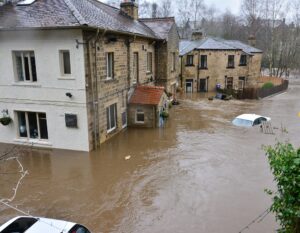
Floods, earthquakes, tornadoes, and other natural disasters all tend to raise similar questions in the minds of victims, affected communities, and the watching public. Why did this happen? Did God cause it? Is he punishing someone? If God is so loving and in control of all things, why didn’t he prevent this devastation?
When interacting with people following a disaster, it is good to have as much clarity as possible concerning God’s involvement so we don’t misrepresent him with personal perspectives. Therefore, I decided to search scripture and read articles to discover God’s connection to natural disasters. Following are some insights into commonly asked questions.
Where do natural disasters originate?

We have to go back to the beginning of man’s history. God created all that exists “…and it was very good” (Genesis 1:31). Then, through man, sin entered God’s flawless world, and with it death (Romans 5:12). Mankind wasn’t all that was affected by sin, though. In response to Adam’s sin, our Holy God cursed, or judged, the entire creation (Genesis 3:17; Romans 8:20). In fact, Paul said, “the whole creation has been groaning as in the pains of childbirth,” waiting to be “liberated from its bondage to decay” (Romans 8:21-22). Part of creation’s groaning can be seen in natural disasters. The big picture shows that creation is in pain every day—a wildfire in California, a flood in Texas, an earthquake in Haiti, a typhoon in the Philippines. The groaning is continuous.
Does God cause natural disasters?
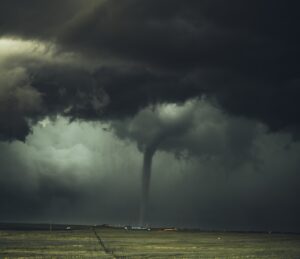
If God created all things (John 1:3), then he also created the laws of nature. Because God cursed the earth in response to sin, those laws sometimes lead to disastrous occurrences. For example, two tectonic plates, which are constantly moving beneath the earth’s surface, sometimes get stuck on each other; when they slip apart, the force may cause an earthquake. Or a combination of an unstable air mass and wind shear can cause a tornado to develop in a severe thunderstorm. Therefore, God is generally responsible for disasters.
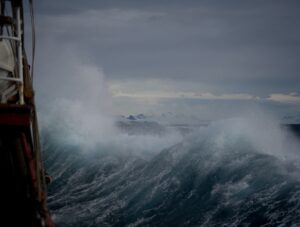
But does God ever intentionally cause a natural disaster? Here are several instances recorded in scripture. In the day of Noah, God said, “I am going to bring flood waters on the earth…” (Genesis 6:17). Among the plagues on Egypt, “…the Lord sent thunder and hail, and lightning flashed down to the ground. So the Lord rained hail on the land of Egypt” (Exodus 9:23). In Moses’ day, by the hand of the Lord “31…the ground under them split apart 32and the earth opened its mouth…” (Numbers 16:31-32). While Jonah was in a ship, “the Lord sent a great wind on the sea, and such a violent storm arose that the ship threatened to break up” (Jonah 1:4).
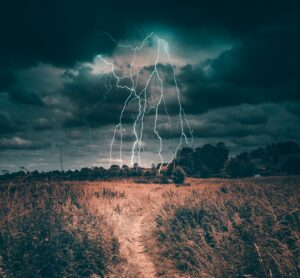
Job’s children were killed in a tornado and his servants and sheep were killed by lightning. However, God did not send these disasters by his own hand. He gave Satan permission to do so within the limits God himself set (Job 1:8-19). This tells us that God was still ultimately in control of the disasters that befell Job’s family.
God himself makes it clear when he says, “…I am the Lord, and there is no other. I form the light and create darkness, I bring prosperity and create disaster; I, the Lord, do all these things” (Isaiah 45:6-7).
Can God prevent or interrupt a natural disaster?
Since God can cause disastrous weather conditions and also permit them, it follows that he can stop or prevent them as well.
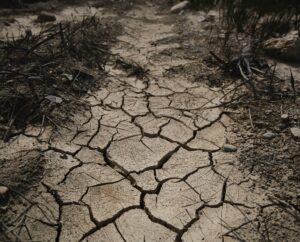
God had brought drought upon the nation of Israel for three and a half years through the word and prayers of his prophet Elijah (James 5:17; 1 Kings 17:1). When his purpose for the drought was fulfilled, he put an end to it. “…The word of the Lord came to Elijah: ‘Go and present yourself to Ahab, and I will send rain on the land’” (1 Kings 18:1).
One day Jesus was sleeping in the stern of a boat when “37a furious squall came up, and the waves broke over the boat, so that it was nearly swamped.” His frightened disciples awakened him. “39He got up, rebuked the wind and said to the waves, ‘Quiet! Be still!’ Then the wind died down and it was completely calm…41They…asked each other, ‘Who is this? Even the wind and the waves obey him!’” (Mark 4:35-41).
God created nature, and it will do whatever he tells it to do.
Are natural disasters God’s judgment on people?
The Bible tells of many natural disasters that were God’s judgment on man’s sin.
God sent the floodwaters on the earth because “12God saw how corrupt the earth had become, for all the people on earth had corrupted their ways. 13So God said to Noah, ‘…I am surely going to destroy both them and the earth’” (Genesis 6:12-13).
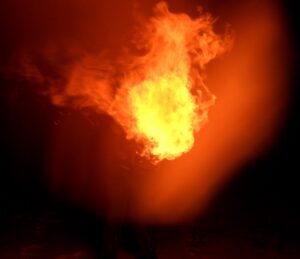
It was because of “their sin so grievous” (Genesis 18:20) that “the Lord rained down burning sulfur on Sodom and Gomorrah—from the Lord out of the heavens” (Genesis 19:24), destroying the cities and surrounding area.
The Lord brought the plagues on the Egyptians because of their oppression of the Israelites and Pharaoh’s unyielding heart (Exodus 3:9; 7:14).
The Lord caused the earth to open up and swallow Korah, Dathan, and Abiram because they had “treated the Lord with contempt” (Numbers 16:1, 29-31).
In each of these Old Testament instances, it’s interesting that God announced what he was going to do and why. He left no room for speculation.
Not every disaster in the Bible was a divine punishment on sin, though. The storms that killed Job’s family were not. God described Job as “blameless and upright, a man who fears God and shuns evil” (Job 1:8). God never revealed to Job the reason those things happened, but there was no indication of punishment.
Natural disasters can be God’s judgment on man’s sin, but we can’t presume that they always are.
If God loves us, why doesn’t he prevent natural disasters?
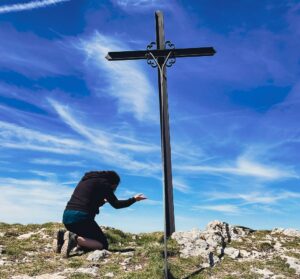
Our loving God and Creator gave us freedom to choose whether or not we wanted to live for him. Because Adam chose to reject him, sin entered our world and brought the consequence of death (Romans 6:23). But God’s love moved him to make provision for us, through his death and resurrection, to escape spiritual death and live forever with him in eternity. Every new day he gives us is another chance to choose him, another demonstration of his love.
However, we can’t escape the curse of physical death. We will all die someday, and each death will bring sorrow for loved ones. The difference between a single death and a natural disaster is the immensity of loss. We could just as well ask why God doesn’t prevent all the tens of thousands of individual deaths around the world each day. They are going to happen, whether from disease, accident, bodies wearing out—or in a natural disaster. This is not the world God created for us; it is the sin-ravaged one we created. But God is here to love us through it.
Where is God in a natural disaster?
God works through natural disasters much as he does through any tragedies in our life, but maybe in a more impactful way because of their magnitude.
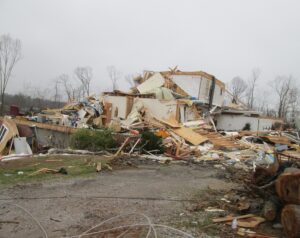
They can remind us that God is ultimately in power. We don’t control our world; he does. The psalmist said, “5I know that the Lord is great, that our Lord is greater than all gods. 6The Lord does whatever pleases him, in the heavens and on the earth, in the seas and all their depths” (Psalm 135:5-6).
They can remind us of our mortality. So much death and destruction at one time can awaken us to the reality that our life is “…a mist that appears for a little while and then vanishes” (James 4:14).
God wants us to “know and believe me and understand that I am he” (Isaiah 43:10). That includes knowing he is always in control, he holds our life in his hands, and he wants only the best for us. But we can’t know him if he doesn’t have our attention.
This is what the Lord says— your Redeemer, the Holy One of Israel: “I am the Lord your God, who teaches you what is best for you, who directs you in the way you should go. If only you had paid attention to my commands, your peace would have been like a river, your righteousness like the waves of the sea." ~Isaiah 48:17-18
God will use everything in our life, from the gentlest word spoken to the greatest disaster, to draw our attention to himself because he knows he is everything we need.
How can we respond to natural disasters?
Speculating on why a particular disaster happened is not the best use of our energies. God does not tell us his reasons for everything. In fact, we are incapable of knowing all that he knows. “8‘My thoughts are not your thoughts, neither are your ways my ways,’ declares the Lord. 9‘As the heavens are higher than the earth, so are my ways higher than your ways and my thoughts than your thoughts’” (Isaiah 55:8-9).
Job shows us a better response. After the destruction of all his family and possessions, he acknowledged that God was ultimately responsible, and he worshiped him.
At this, Job got up and tore his robe and shaved his head. Then he fell to the ground in worship and said: “Naked I came from my mother’s womb, and naked I will depart. The Lord gave and the Lord has taken away; may the name of the Lord be praised.” In all this, Job did not sin by charging God with wrongdoing. ~Job 1:20-22
What God wants is our unwavering trust in him when we don’t know the whys in life—trust in his goodness, his wisdom, his infallibility.

We can also respond to people affected by disasters by loving them through action (1 John 3:16-18). God has compassion for the weak and helpless (Psalm 68:5-6; James 1:27), and he wants us to be like him. By listening to them and helping them with their present needs, using whatever resources God has given us, we show how much God cares for them. We can assure them God has not deserted them and help them recognize God’s hand at work in their life.
Scripture quotations are from NIV.

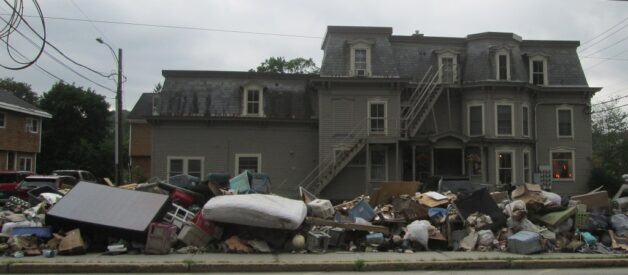
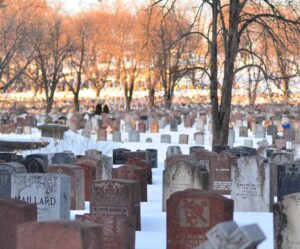
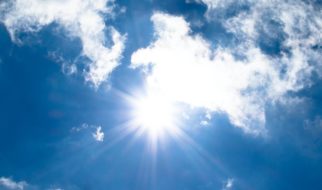

Angie Camp
August 16, 2023Bonnie, may your encouragement to the folks in Vermont be multiplied over and over! May many come to Him and thus know their Creator, Redeemer, and Restorer, Angie
bspencer
August 16, 2023Thank you so much, Angie!
Brenda Murphy
August 16, 2023This is great, thanks for laying it out so clearly. Whether a person believes disasters are God’s judgement or not, it isn’t God’s heart for us to judge, nor is it our place to hand out condemnation. Our job is to love and point others to a loving God. You guys are doing that beautifully 🙂
bspencer
August 16, 2023“Our job is to love and point others to a loving God.”
Yes, you’re so right, Brenda. Thank you.
Becky Hancock
August 18, 2023Bonnie,
This was such a good and solid, scriptural explanation, friend. I am so sure that your disaster relief experiences have given you a rich understanding of God’s heart. Blessings on you and CW as you minister in Jesus’ name.
bspencer
August 18, 2023Thank you so very much, Becky! Good to hear from you.